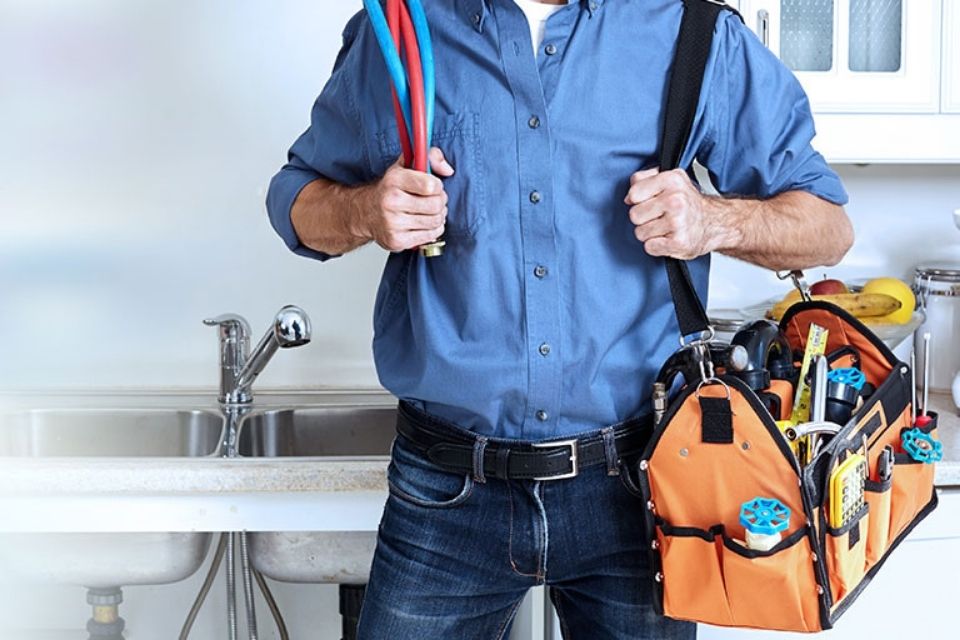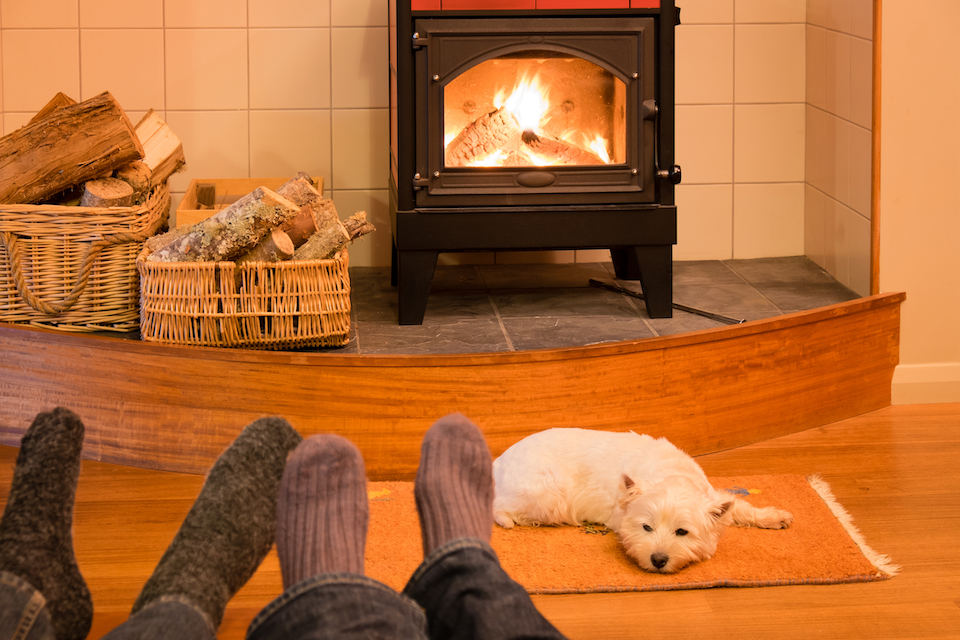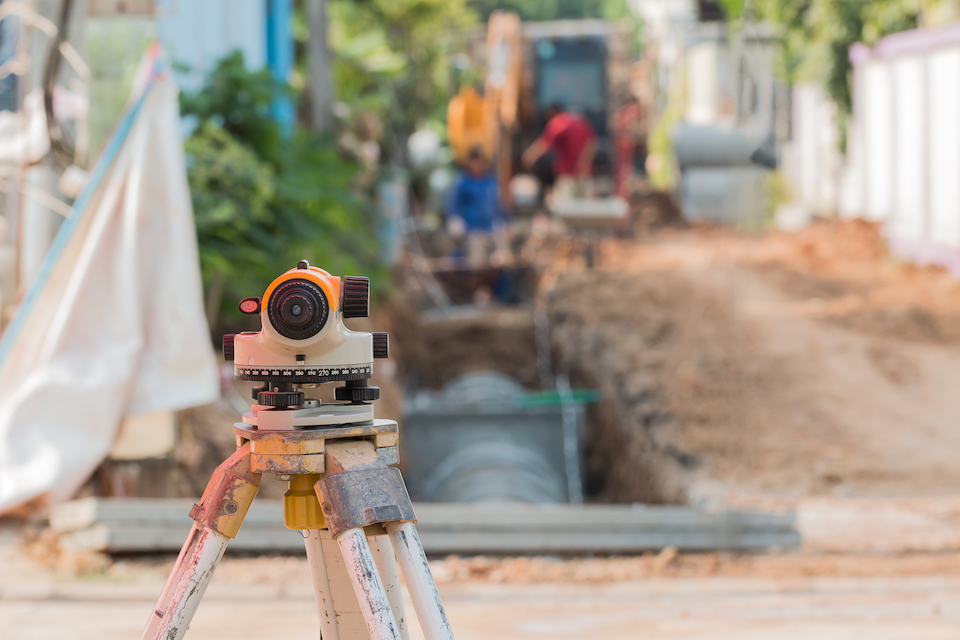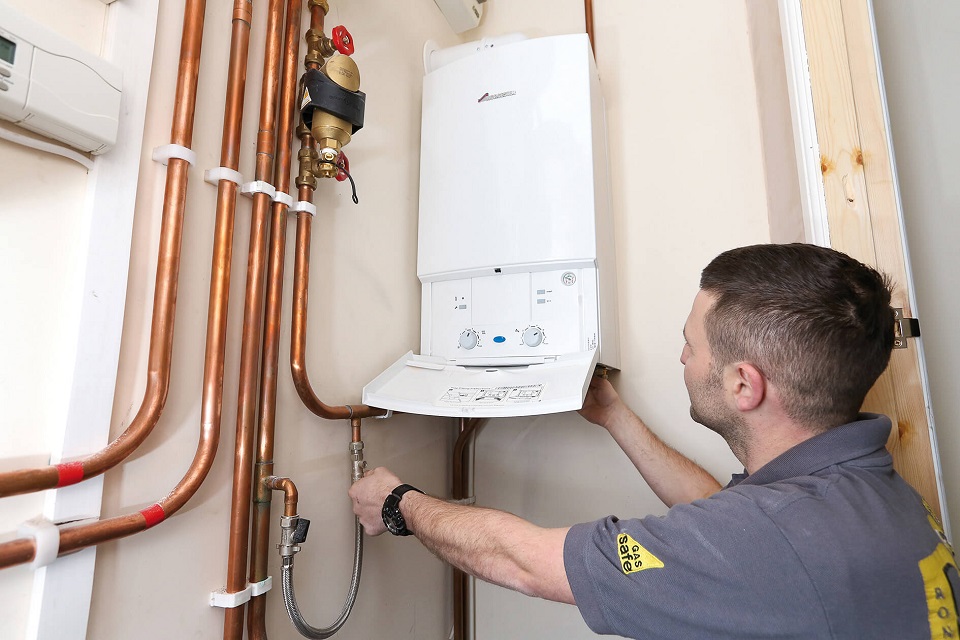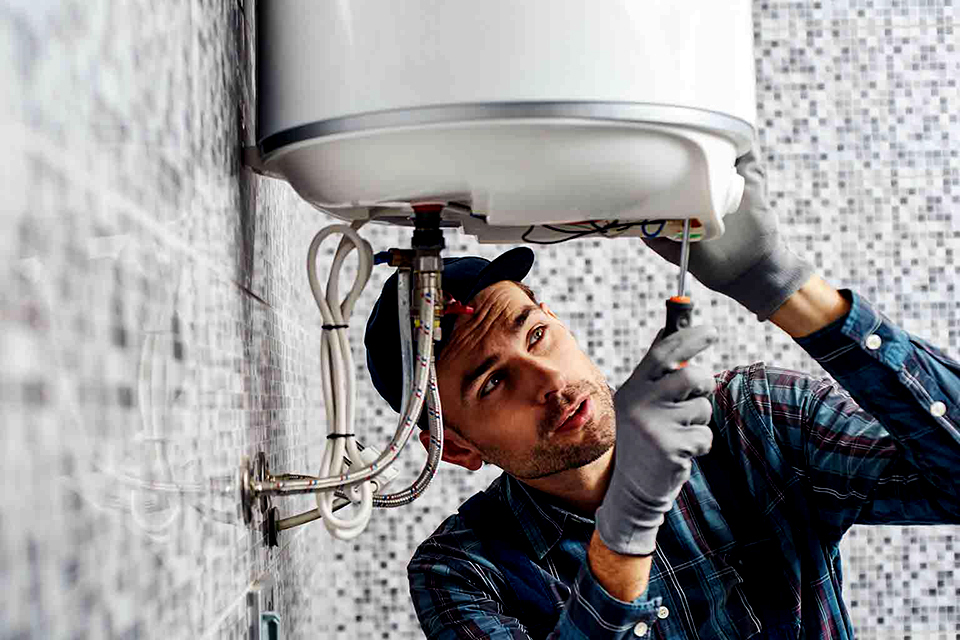How Much Is An Emergency Plumber?
The average cost of emergency plumbing is around £100 to £180. However, this will vary depending on where you live, as plumbers in London tend to charge a lot more than tradespeople in Northern parts of the country.
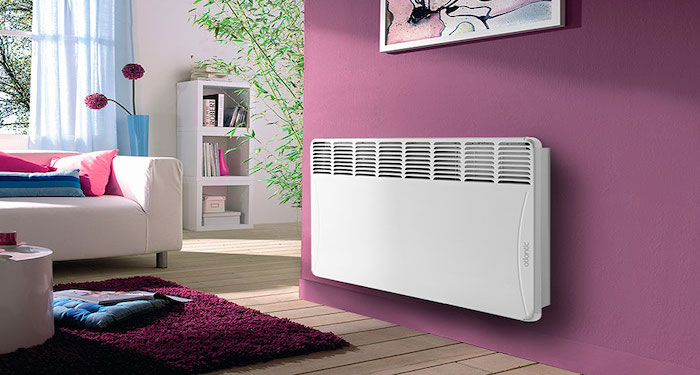
Emergency plumber prices will also be based on the type of plumbing problem you are encountering. They also differ from a standard plumber hourly rate due to the nature of it being an emergency. For how much a plumber charges per hour, you can look further down this article. The table below sets out the different costs for various emergency plumbing issues.
Emergency Plumbing Prices
| Plumbing Job | Average Cost |
|---|---|
| Overflowing or blocked toilet | £100 - £250 |
| Sink blockage | £100 - £180 |
| Drain blockages | £200 - £300 |
| Malfunctioning boiler | £100 - £240 |
| Boiler pressure issues | £100 - £240 |
| Hot water tank repairs | £300 - £400 |
| Gas leak/broken gas pipes | £100 - £1,000 |
What are the Supply Costs of Emergency Plumbing?
When dealing with an emergency plumbing issue, the total cost isn’t just about labour. The materials and parts needed can make up a significant portion of the bill. Whether you’re facing a burst pipe, a faulty boiler component, or a leaking toilet, the price will vary depending on what needs to be repaired or replaced.
Below is a breakdown of the average supply costs for common plumbing parts, so you know what to expect before the work begins.
| Plumbing Parts | Supply Cost |
|---|---|
| Steel pipes | £2 - £50 per metre |
| Copper pipes (15mm) | £3 - £6 per metre |
| Radiators | £110 - £500 |
| Toilet | £100 - £2,000 |
| Sink | £45 - £430 |
| Boiler | £490 - £4,000 |
| Boiler heat exchanger | £300 - £500 |
| Boiler flue | £100 - £200 |
| Boiler control panel | £60 - £250 |
| Boiler timer | £50 - £150 |
| Gas valve | £70 - £240 |
Choosing whether to repair or replace is crucial. Quick fixes may solve the immediate problem, but long-term reliability often comes from investing in proper replacements.
What are the Additional Costs of Emergency Plumbing?
In addition to the call-out fee and cost of materials, emergency plumbing jobs can sometimes lead to other necessary expenses. From replacing outdated systems to improving efficiency or preventing future failures, here are some of the most common additional costs homeowners could have when dealing with plumbing emergencies:
New Radiator Installation
If this is not the first time that you’ve had to call out an emergency plumber to deal with radiator problems, it may be a sign that your current radiators are outdated, inefficient or beyond repair. Older radiators can suffer from internal corrosion, cold spots or leaking valves. These issues can often recur even after you have had them repaired.
Installing brand new radiators not only helps reduce the chances of future emergencies but can also improve your home’s energy efficiency and general heating performance. Modern radiator models offer better heat output, faster warm-up times and can be a sleeker appearance to match your home decor better.
The cost of installing radiators typically starts at around £200 per unit, depending on the type, size, and whether pipework adjustments are needed.
Boiler Replacement
Boilers generally have a lifespan of around 10 to 15 years, but as they age, they become less efficient and more prone to breakdown. If you’ve already had to call out an emergency plumber for boiler-related issues before such as pressure loss, inconsistent heating, or unusual noises, it may be more cost-effective to invest in a full replacement rather than another repair.
Upgrading to a modern, energy-efficient boiler can significantly reduce your heating bills and improve the reliability of your central heating system. By upgrading to a condensing boiler, you will find they are far more efficient than older models and come with smart controls, improved safety features and extended warranties.
The typical boiler installation prices range from £1,000 to £4,000, depending on the type of boiler (combi, system, or conventional), the complexity of the installation, and whether additional work such as upgrading pipework or radiators is required.
Underfloor Heating
If you have poor or inconsistent heating in your home, especially in larger rooms or spaces with cold flooring like tiles, then underfloor heating could be a good investment. It will provide even heat distribution throughout the room and eliminate the need for bulky radiators which can create a more comfortable and aesthetically pleasing room.
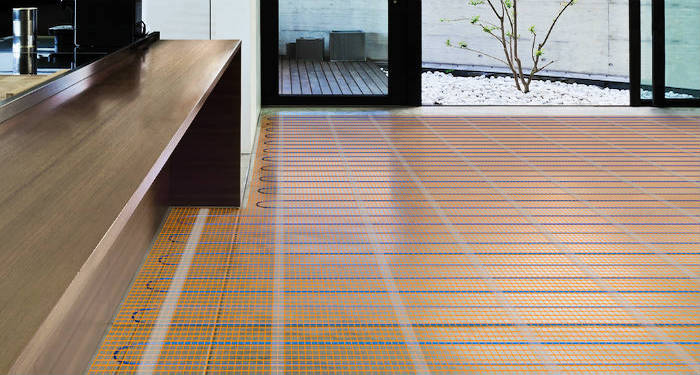
Underfloor heating is a popular choice in bathrooms, kitchens and extensions, and can be used as a primary heating source or to supplement your existing system. There are two main types to choose from:
- Wet Systems - warm water pipes connected to your central heating.
- Dry Systems - electric heating mats or cables.
The average price of underfloor heating depends on the type you select and the size of the area being heated. A wet underfloor system typically costs around £40 per square metre to install, while a dry (electric) system can range from £50 to £100 per square metre. Installation costs may be higher if floor excavation or insulation upgrades are required.
Cost-Affecting Factors?
The cost of an emergency plumber will also depend on various factors, including:
Type of Plumbing Issue
The most important cost factor is the type of emergency plumbing job. Smaller jobs such as sink blockages, tend to be a lot cheaper than high-risk issues such as a gas leak.
Minimum Fees
Some plumbers charge a minimum fee regardless of the issue or job. When obtaining a quote, you should ask if they charge a minimum fee, which will help you determine the overall cost.
Timeframe
The time spent on the job will also significantly affect the cost, as usually the longer the job takes, the more it will cost.
What to Do in a Plumbing Emergency
If you have a plumbing emergency, acting quickly can minimise the damage and help keep your home safe. Here’s a quick step-by-step guide to follow until an emergency plumber arrives:
1. Turn Off the Water Supply
Locate your internal stopcock. This is usually found under the kitchen sink or in a utility cupboard. Turn it clockwise to shut off the water. This is the most important step to stop water damage from spreading to other areas of the house.
2. Switch Off the Boiler (If Needed)
If the emergency involves your heating or hot water system, make sure you turn off the boiler. This will prevent it from overheating or any additional pressure build-up.
3. Isolate Electrical Appliances
If water is leaking near any plug sockets or electrical appliances, switch off your electricity at the fuse box as a safety precaution. Never touch electrical fittings that have got wet!
4. Drain Taps and Toilets
After shutting off the water to your house, open your cold taps and flush toilets. This will empty any remaining water in the system and help reduce water pressure.
5. Call an Emergency Plumber
Once you have made your home safe, contact a professional plumber who offers 24-hour callouts.
6. Take Note Of Any Damage
Take photos of the areas where you have had the leak. This will be especially important if you will be making a home insurance claim for damaged items. Photographic evidence can help speed up the claims process.
Tradesmen Costs for Emergency Plumbing
The labour cost for emergency plumbing will, of course, vary depending on the type of job. However, you can determine the roundabout price by looking at the estimated hourly or daily rates in your area.
In London, you should expect to pay around £50 per hour or £280 per day, in comparison to places like Sheffield where plumbers charge an hourly rate as little as £30 or £220 for a day’s work.
Plumbing emergencies rarely give a warning. Acting quickly and calling a professional is the best way to protect your home and avoid costly repairs.
How Long Do Emergency Plumbing Jobs Take?
The time spent on a job will vary significantly, as smaller repairs may only take an hour or two whereas a replacement could take a full day or more.
Types of Emergency Plumbing Jobs
There are several emergency plumbing jobs you need to consider before calling out a plumber. Some of the most common emergencies include:
Overflowing or Blocked Toilet
If your toilet will not flush or you notice it is overflowing, it is always a good idea to call in a plumber to resolve the issues quickly.
Some of the main causes for an overflowing or blocked toilet include trapped air, flushing unsuitable items, a build-up of limescale or cracks in the pipework.
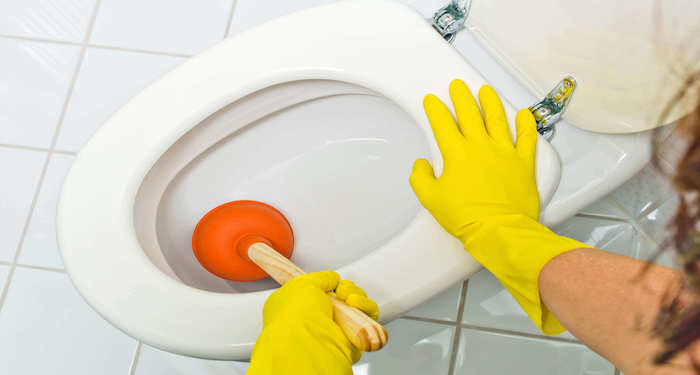
You should call an emergency plumber if you notice that the toilet is flushing slowly or not at all, it does not refill, or the toilet is draining very slowly.
The call-out cost is typically around £100 to £250, although this could increase if the problem is more complex or a replacement is required.
Pros:
- Keeps your toilet plumbing in good working order
- It will be resolved fairly quickly
Cons:
- You will incur an emergency call out fee
Sink Blockage
A blocked sink is quite common as many items can get stuck in the drain, which can cause a significant build-up.
The most common cause of sink blockages is the residue from soap, hair, food and scum. Limescale can also cause a sink to block, as can pipes if they are damaged or too narrow.
An emergency plumber will be required if your sink shows signs such as a slow-draining sink, gurgling noises, unpleasant odours and fluid regurgitation.
You should expect to pay anywhere from £100 to £180 for a blocked sink repair.
Pros:
- Keeps your plumbing in good working order
- It will be resolved fairly quickly
Cons:
- You will incur an emergency call out fee
Boiler Problems
If your boiler is less than ten years’ old and not operating correctly, then it is important that you get professional help as soon as possible to prevent any costly repair or replacement.
Boiler issues can occur as a result of incorrect installation or even poor manufacturing if any components are not working properly or are completely broken.
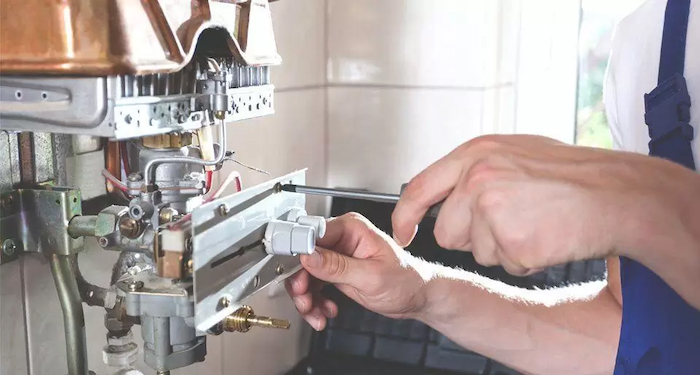
You should call out a professional plumber if you hear any strange noises such as leaking or hissing coming from your boiler.
You may also notice inconsistencies with temperature, to the extent that you may not be able to control the temperature or your radiators aren’t working.
The cost of hiring an emergency plumber for boiler repairs could range from £100 to £240.
Pros:
- Having your boiler fixed quickly will prevent any further damage
- It will ensure your boiler is working efficiently again
Cons:
- You will incur an emergency call out fee
Gas Leak
One of the most serious issues you may encounter is a gas leak, as they can be extremely damaging to your health and could result in a fire or explosion if left. This is why a gas leak should be addressed immediately by a professional.
One of the main causes of a gas leak is old appliances which are worn out. Pipework damage is also another common contributor, as are poorly fitted appliances.
It is vital that pay attention to the signs of a gas leak, including a sulphuric or rotten egg type of smell. You may also hear a hissing sound or could even start to feel dizzy or suffer from headaches.
Emergency plumbers tend to charge around £100 to £1,000 depending on the extent of the leak.
Pros:
- Ensures the safety of your home as gas leaks can be highly dangerous
Cons:
- You will incur an emergency call out fee
How to Prevent Plumbing Emergencies
Some plumbing emergencies are unavoidable, but there are many common issues that can be prevented with a bit of maintenance and care. Here are a few ways you can help reduce the risk of unexpected plumbing problems in your home:
1. Insulate Water Pipes in Cold Weather
Frozen pipes are a common cause of bursting pipes during the winter months. By using foam pipe lagging to insulate exposed pipes in lofts, garages, and under sinks, you can help reduce the risk. This is especially important in unheated areas of your home.
2. Know Where Your Stopcock Is
Make sure you know where your home’s stopcock is and that you can turn it easily. This is the main water shut-off valve, and in an emergency, you will need to have quick access to it so you can minimise the damage.
3. Avoid Flushing the Wrong Things Down The Toilet
Toilets should only be used for toilet paper and waste. Do not flush baby wipes, cotton wool, sanitary products or kitchen roll. These are not made for flushing down the toilet and can cause blockages over time.
4. Clean Your Drains Regularly
Use drain strainers and regularly clean hair and debris from bathroom and kitchen plugholes. This can help prevent slow draining and blockages. Do not pour fats or oils down the sink as these again, can build up overtime and block your pipes.
5. Get Your Boiler Serviced Annually
Getting your boiler professionally serviced once a year will keep it running efficiently and help spot any issues early on. A faulty boiler can lead to leaks or complete failure which can be a costly expense.
6. Monitor Your Water Pressure
If you have excessively high water pressure it can damage pipes, joints and your appliances. If you hear pipes banging when you turn on the water or the water sprays too forcefully from your taps, consider calling a plumber to check. You may need a pressure-reducing valve installed to help combat the issue.
7. Fix Small Leaks As Soon As They Start
Don’t ignore dripping taps, small damp patches, or occasional toilet running. These may seem like minor issues but they can quickly turn into a costly emergencies if left for too long.
Regular plumbing maintenance might seem minor, but it’s the key to preventing major emergencies. A little attention now can save you from big, unexpected costs later.
FAQs
Q: What is a plumbing emergency?
A: A plumbing emergency is classified as an issue with your plumbing system that prevents you from cooking, cleaning, or staying safe in your own home.
A: If it poses a risk to your safety, health, or property if not dealt with immediately then its an emergency. Common examples include:
- No access to clean running water.
- Sewage backup.
- Water leaking near electrical outlets or appliances.
- Strong smell of gas or signs of a gas leak.
- Burst pipes or rapidly spreading water leaks.
- Non-functioning toilets within in single-bathroom households.
Q: Does insurance cover emergency plumbing?
A: The majority of home insurance policies will provide emergency plumbing cover for issues such as burst pipes or accidental water leaks. However, it may not cover smaller jobs such as blocked toilets and sinks as well as amateur installations.
Q: How do you pick an emergency plumber?
A: To find an emergency plumber in your area, you can google ‘emergency plumbing near me’. You may also want to ask any neighbours if they have a good recommendation as this will provide you with complete reassurance that the job will be done properly.
Q: Is a leaking boiler classed as an emergency?
A: Repairing a boiler leak is not typically classified as an emergency plumbing service; however, if there is any significant damage to the appliance, this would require an immediate emergency plumbing repair before it becomes irreparable.
Q: Why are emergency plumbers more expensive?
A: Emergency plumbers provide a 24-hour emergency plumbing service which tends to cost more than normal services. This is because they are typically called out in unsociable hours and must work quickly to correct the problem.

